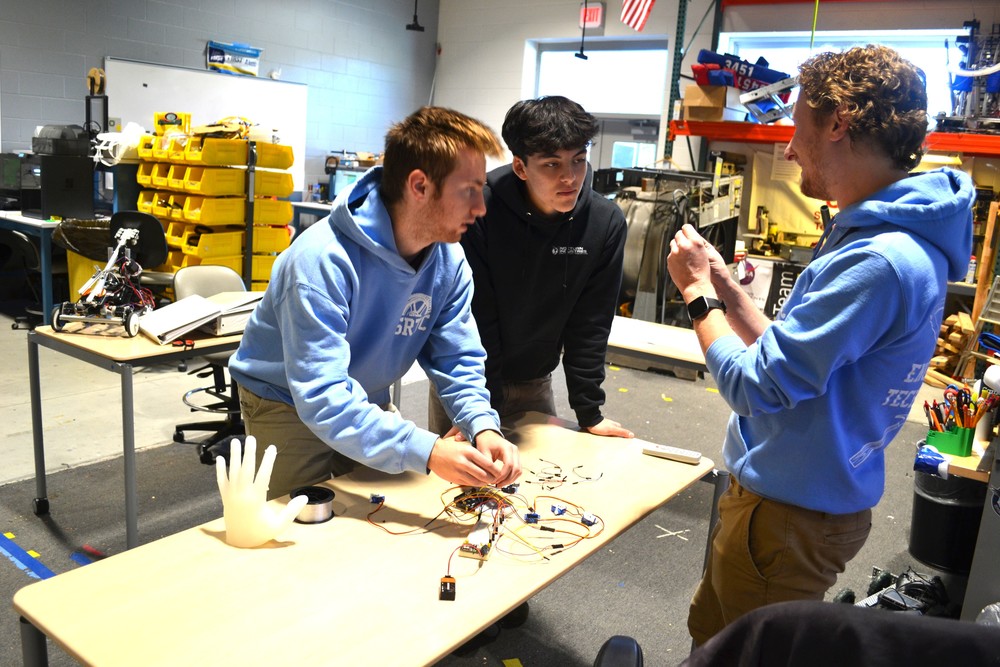There's no single "right answer" in engineering, and that's exactly what makes SRTC’s Engineering Technologies Program so exciting. Instructor Ethan Mathieu loves seeing the creativity his students bring to solving problems, with each one of them finding their own approach to the same engineering challenge.
This two-year program at Sanford Regional Technical Center serves as a launchpad for students heading to university engineering programs, exposing them to the engineering design process, diverse engineering disciplines, and the knowledge and skills they'll need to succeed at the college level.
Mathieu brings both electrical engineering and educational experience to the classroom, approaching instruction with a growth mindset philosophy.What he enjoys most about teaching the program is witnessing student ingenuity in action. "There's so many ways to approach a problem," Mathieu explained. "It's always pleasantly surprising to see the different creative solutions my students find to approach the engineering problems we encounter in class."
Students explore the engineering design process from concept to implementation, learning about different disciplines and the career paths available in the field. The program goes beyond theoretical knowledge by having students apply math and science concepts to develop and include solutions to authentic engineering problems using industry-standard tools, equipment, and technology.
For second-year student Ethan Hafenecker, the program has provided clarity about his future path. "SRTC has made me smarter and more prepared for my life and future," Hafenecker said. "I have an idea of what I want to do and what I can expect to get into after graduating." His experience reflects how the program helps students discover their career direction while building practical skills.
The program provides opportunities that extend beyond the classroom walls. Recently, students traveled to the University of Maine for the Windstorm Challenge, where they tested floating platforms in a wave pool and presented their engineering process to a panel of judges. These experiences give students authentic exposure to university-level engineering work while still in high school.
Students can earn the NOCTI Pre-Engineering Certificate, demonstrating their competency in foundational engineering principles to colleges and employers. The program is currently working to establish a concurrent enrollment agreement with Southern Maine Community College, which would allow future students to earn college credits while completing the program, giving them an even greater head start on their engineering education.
For Mathieu, the real reward goes beyond the equipment and credentials. Ultimately, it's about the students themselves. "My favorite part of SRTC is getting to meet students and seeing their skills as engineers grow and ideas come to life."

